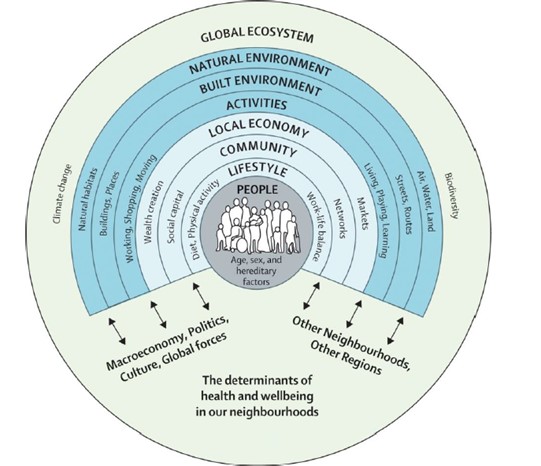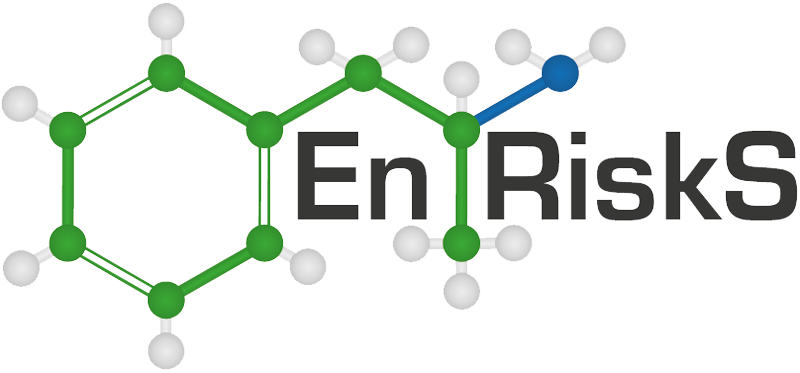Health impact assessment (HIA)
Health is universally seen as one of the highest-ranking societal values. It is a fundamental indicator of sustainable development and an undeniable human right. Globally, the World Health Organization (WHO) is the leading authority of health and provides guidance on assessing a wide range of health impacts. The WHO defines health as:
“a state of complete physical, mental and social well-being and not merely the absence of disease or infirmity.”
Evidence about what influences health and disease in populations has been accumulating for decades. The factors that keep us well often lie outside the direct influence of the health sector and are determined by a range of influences, often called determinants of health. These determinants are varied and include environmental factors such as housing conditions, urban design, soil, transport, ecosystems, biodiversity, historic heritage, ambient air and water quality. These are shown in the following figure (WHO 2014).
Moving from the centre outwards, health determinants are increasingly influenced by policies or plans. The science and practice of public health aim at understanding how all these determinants influence human health and, on this basis, how to promote wellbeing and prevent disease.

Figure: Key determinants of health (from WHO 2014)
Health impact assessment (HIA) is a predictive tool that considers both positive and negative impacts on health of new developments or upgrades to existing developments A HIA may also:
- identify measures to minimise any negative impacts
- identify measures to enhance the positive impacts on community health
- identify population groups more likely to suffer from health inequity e.g. specific groups who may be more vulnerable to a particular health outcome(s) than the general population.
In Australia, enHealth is the leading authority on the assessment of a range of health issues and provides national guidance on HIA.
enRiskS has conducted HIAs for a wide range of projects that include infrastructure projects, mining projects and energy from waste (EfW) projects. These assessments have been undertaken as part of larger environmental impact assessments or similar planning assessments. Many of these assessments have considered impacts on health and wellbeing, addressing both potential for negative impacts and benefits of the projects.
Reference:
WHO 2014, Health in Impact Assessments: Opportunities not to be missed, World Health Organization Regional Office for Europe, Copenhagen.
